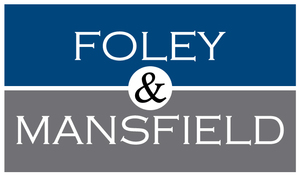On September 16, 2019, the Minnesota Court of Appeals upheld summary judgment granted in favor of asbestos defendants based on Minnesota’s statute of limitations and corporate dissolution statutes. Palmer v. Walker Jamar Co. & Honeywell Int’l, Inc., Nos. A18-2114, A19-0155 (Minn. App. Sept. 16, 2019).
Appellant Deborah Palmer challenged the summary judgment dismissal of her claims against respondent Honeywell International, Inc. (Honeywell), arguing that the district court erred in determining that appellant’s claims were barred by the six-year period of limitations set forth in Minn. Stat. § 541.05, subd. 1(5) (2018). Appellant also challenged the dismissal of her claims against respondent Walker Jamar Company (Walker Jamar) on grounds of insufficient service of process, arguing that the district court erred by (1) determining that, under published caselaw and Minn. Stat. § 302A.781 (2018), appellant was required to bring her claim within two years of Walker Jamar’s 1985 corporate dissolution; and (2) concluding that a 2007 amendment to Minn. Stat. § 302A.781 does not apply to revive appellant’s claim. The Court of Appeals affirmed.
The underlying lawsuit was commenced in Minnesota by Deborah Palmer in 2018. She alleged that her husband contracted mesothelioma and died from asbestos-containing products sold, supplied and installed by defendants Honeywell and Walker Jamar. Honeywell moved for summary judgment under the six-year statute of limitations, arguing that her husband, now deceased, knew of his disease’s relationship to asbestos as late as January 2012. Walker Jamar moved for summary judgment, arguing that plaintiff’s service of the lawsuit was insufficient under the 1984 version of Minnesota’s corporate dissolution statute. Under that statute, any claim was required to be served within two years of a company’s notice of dissolution. Walker Jamar filed its notice of dissolution in 1985. Accordingly, Plaintiff’s failure to bring her lawsuit within that time, Walker Jamar argued, was fatal. Judge John Guthmann of the Ramsey County District Court granted both motions for summary judgment. Plaintiff appealed.
In an unpublished opinion, a three-judge panel of the Minnesota Court of Appeals affirmed. On the first issue, Appellant argued that the statute of limitations period begins only when a plaintiff has an “expert-supported” liability claim against a specifically identified defendant and/or when plaintiff knows which specific asbestos product(s) caused the injury. The Court rejected these arguments, concluding that the limitations period for a wrongful death case begins upon either the manifestation of an asbestos-related disease or upon death. In doing so, the Court explained that the Minnesota Supreme Court has long rejected a defendant-specific knowledge requirement. The Court concluded that the only relevant facts are that plaintiff knew of the causal relationship between asbestos and his injury.
In a footnote, the Court declined an opportunity to affirm or provide comment on Minnesota’s status as a single-asbestos-injury state. Here, Mr. Palmer was diagnosed with calcium deposits in 2009 and mesothelioma in late 2011. The Court concluded that even under a two-injury analysis, Appellant’s claims were untimely.
On the issue of Minnesota’s 1984 corporate dissolution statute, the Court concluded that plaintiff failed to bring suit within the two years of Walker Jamar’s notice of dissolution in 1985. Unless plaintiff served Walker Jamar within two years, any service thereafter was ineffective and thus the lawsuit was barred. The Court’s decision has limited applicability now, however, because the statute was amended in 2007 to protect such claims from dissolution. Still, the Court here rejected Appellant’s claim that the 2007 amendment applied retroactively. Finally, in another footnote, the Court further rejected Appellant’s suggestion that a company assumed liability after dissolution by obtaining asbestos insurance coverage. The Court explained that a company’s insurance coverage was irrelevant to liability.
Appellant originally sued this case out in Fargo, North Dakota, against 177 defendants. Foley & Mansfield obtained a win at the North Dakota Supreme Court in the Palmer case in January 2016, when the Court affirmed the district court’s grant of summary judgment based on no duty in take-home asbestos cases.
In summary, the Minnesota Court of Appeals rejected Appellant’s misplaced reliance on other state’s laws, invitations to deviate from well established Minnesota case law, and arguments to ease and delay the time for when plaintiffs must bring a claim. Appellant has 30 days to petition the Minnesota Supreme Court for further review.
For additional information, please contact Liz Brotten, Joanna Salmen or Jason Mohr in our Minneapolis office at 612-338-9788.
